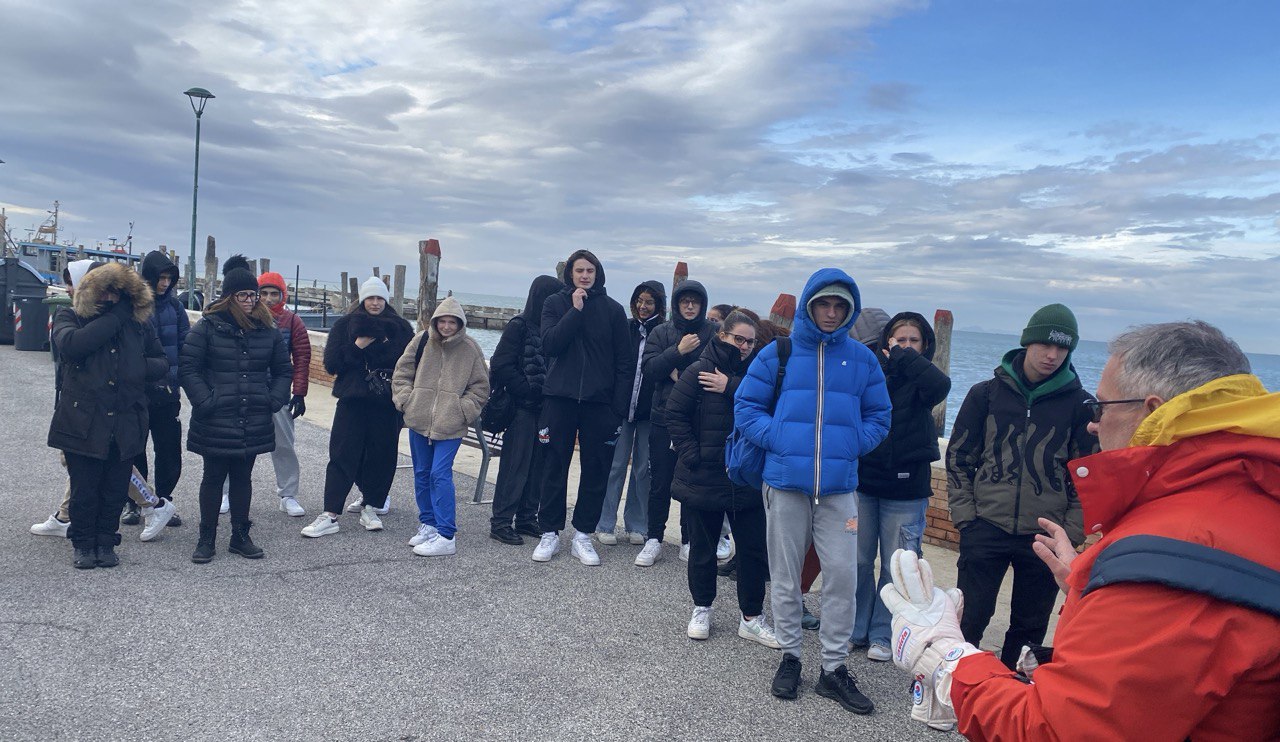Venice Lagoon Plastic Free (VLPF) selected the beach on Pellestrina Island as the site for its final monitoring and cleanup event of 2024. Located south of Venice’s Lido, Pellestrina serves as a barrier between the lagoon and the Adriatic Sea.
This geographical position exposes it to adverse weather conditions and tides excursions. Additionally, Pellestrina is known for its fishing and mussel farming activities, which contribute to the accumulation of marine debris along its coastline.
These conditions provide a critical backdrop for VLPF’s cleanup and monitoring initiatives.
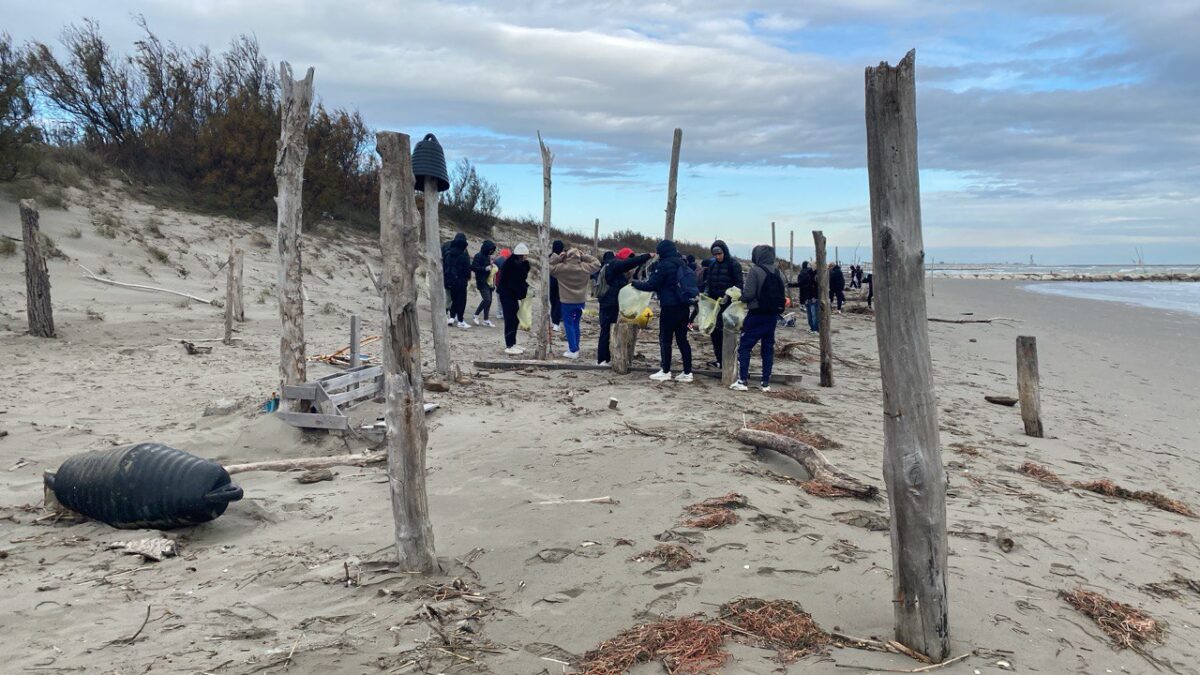
On December 10th, more than sixty students and their teachers participated in the event. They werethree fifth-year classes and one fourth-year class from the Vendramin-Corner Technical and Professional Institute in Venice, specializing in “Environmental Biotechnology.” A group was from the “Transport and Logistics” department of the Sebastiano Venier Nautical Technical Institute, a delegation of students representing the Jesuit College A.M.D.G., also took part into it.
The event offered participants a hands-on citizen science experience focused on:
- Monitoring and cataloging macro beach litter items.
- Sharing standardized data in a common European database repository following the protocols of EMODnet Chemistry.
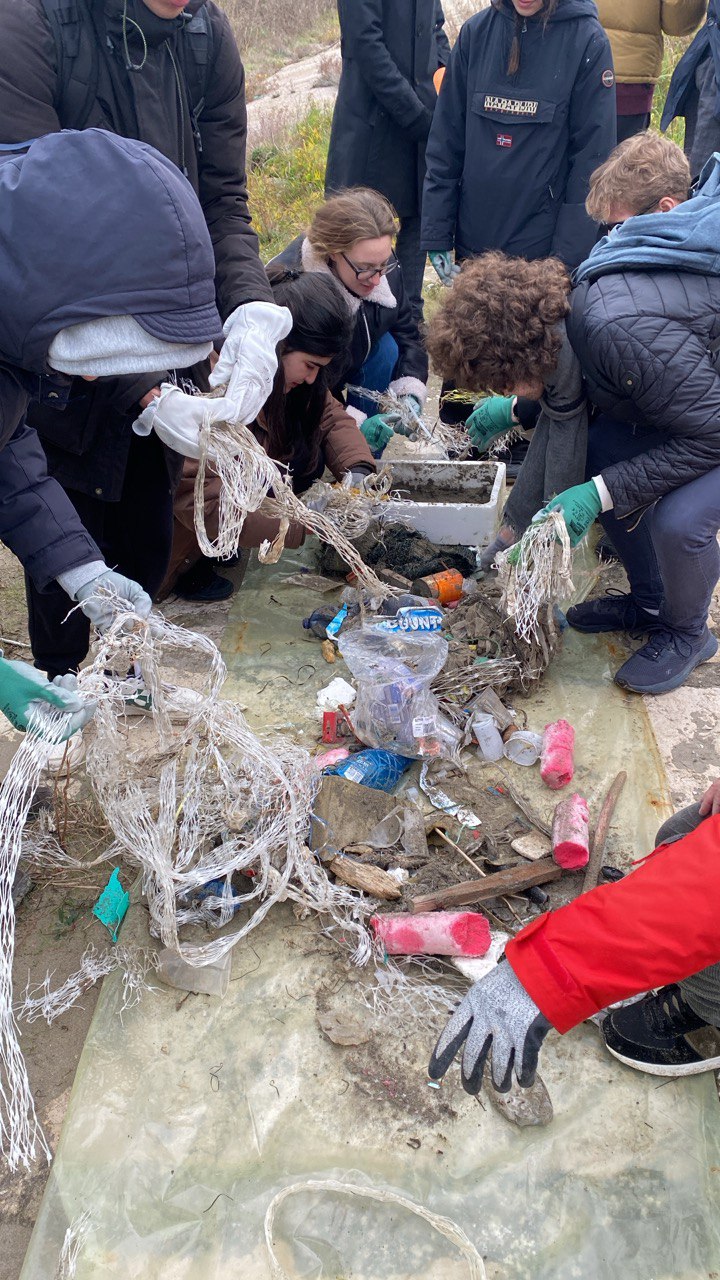
Despite the coldish weather, the students were divided into groups, each with specific responsibilities. A smaller team conducted a marine litter monitoring session under the supervision of VLPF, cataloging individual waste items collected along a 100-meter stretch of beach. The majority of recorded waste was plastic, including fragments of various sizes, bottles, and numerous cotton swabs. The team also identified fishing and mussel-farming nets as predominant waste items.
The waste was classified by type and size using an app developed by VLPF under the HEurope REMEDIES project.
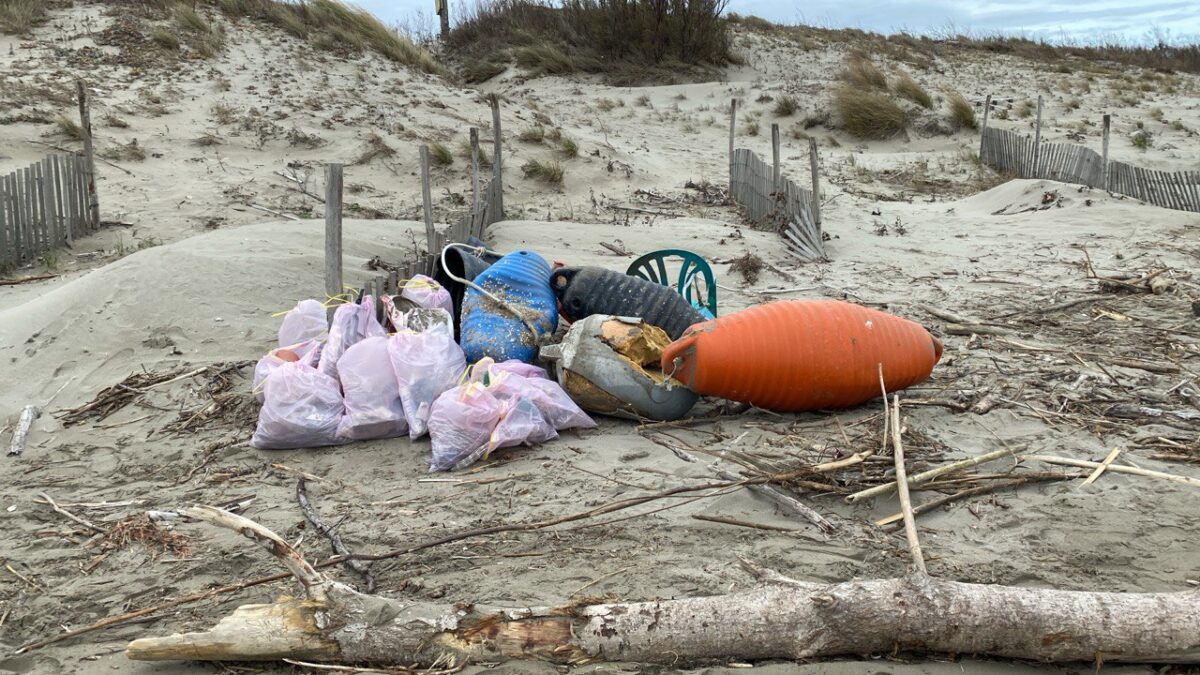
The remaining participants engaged in an environmental contest—a cleanup activity in teams focused on recovering larger marine debris beyond the monitored area. Items retrieved included numerous stranded buoys, mussel-farming nets, life rings, inflatable beach mattresses, toys, plastic bottles, wooden artifacts, and more.
The waste collected during the cleanup contest was weighed and cataloged using an app created by VLPF within the Horizon Europe SeaClear 2.0 project. This interactive app simplifies the process of marine litter collection, transforming it into an engaging and educational activity.
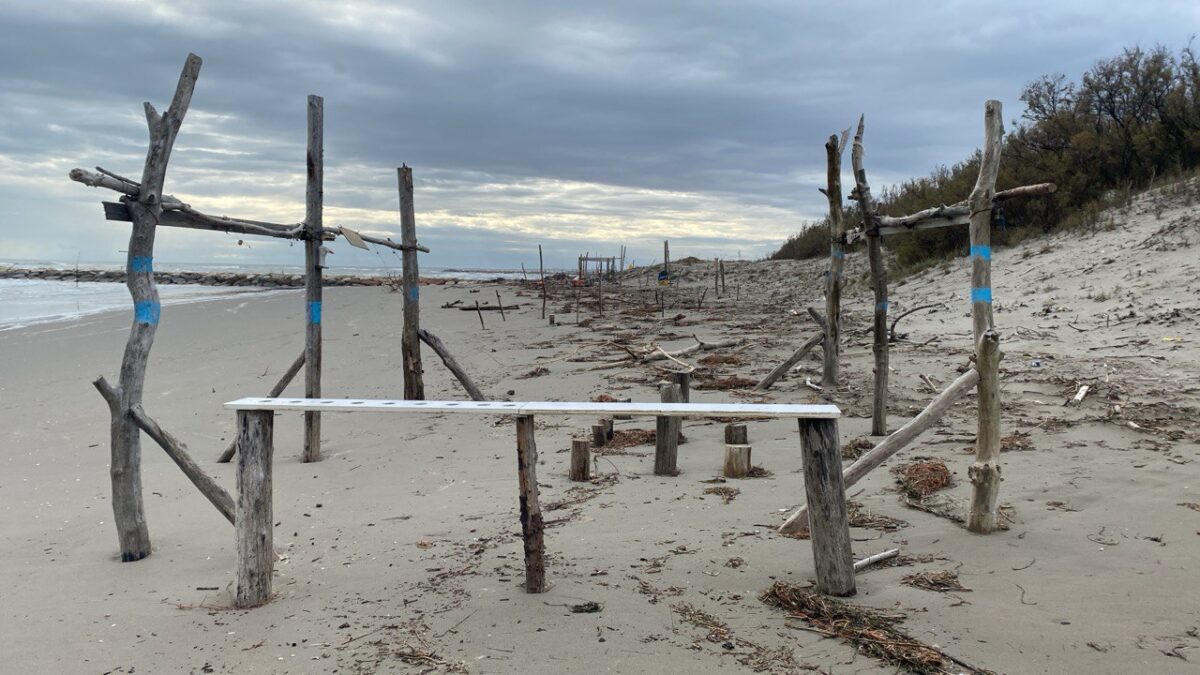
The event resulted in the removal of 185.24 kg of stranded waste, including 12 buoys. Additionally, 432 items of marine litter were monitored, including 120 mussel-farming socks, 14 plastic cups, 21 bags, bottles, and food containers, along with dozens of cotton swabs.
Recyclable waste was collected and delivered to GEES Recycling srl in Aviano, a partner of the H2020 MAELSTROM project, which will manage to mechanically recycle them.
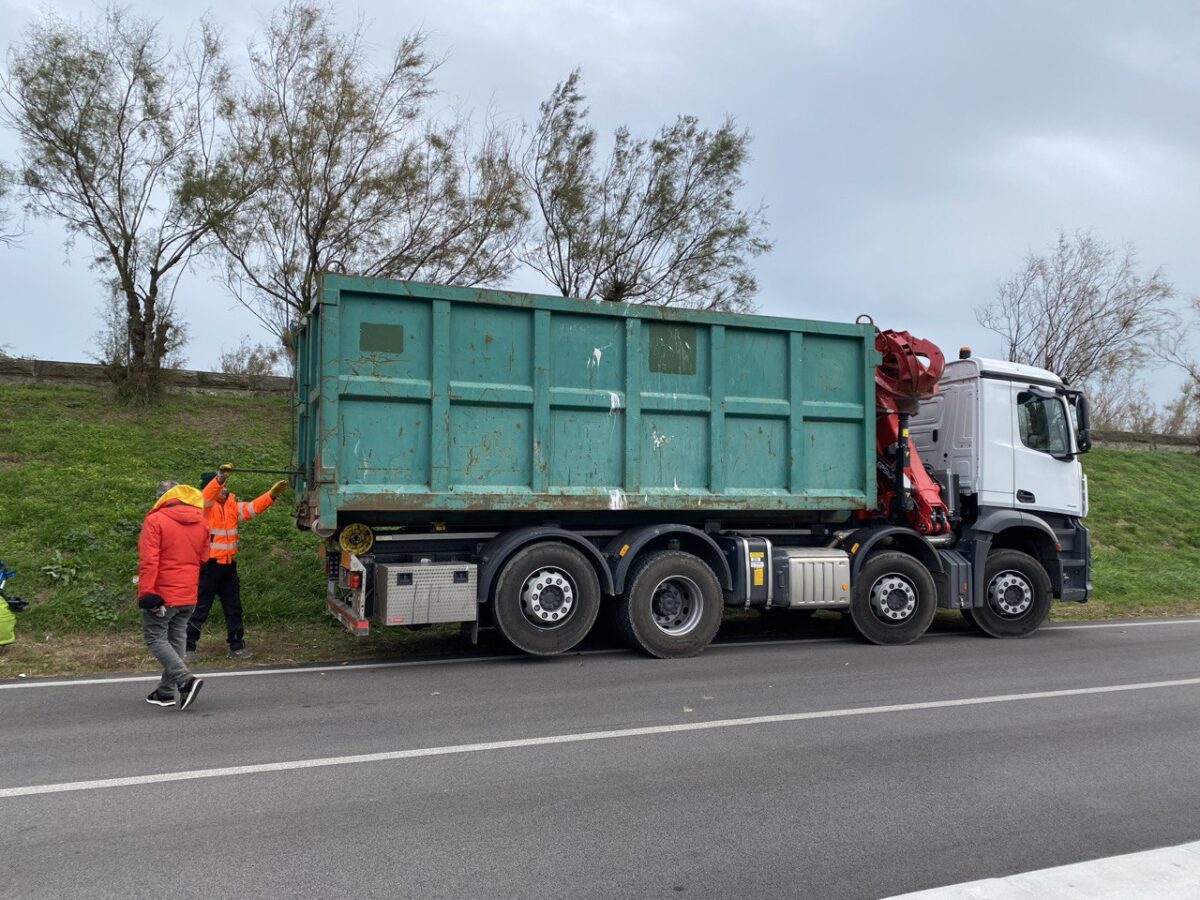
Globally, only 9-10% of plastic waste is recycled.
VLPF hopes that its monitoring and cleanup activities, particularly those involving young people, will foster greater awareness of responsible plastic use, reducing its dispersion into nature and promoting its sustainable and circular valorization.
